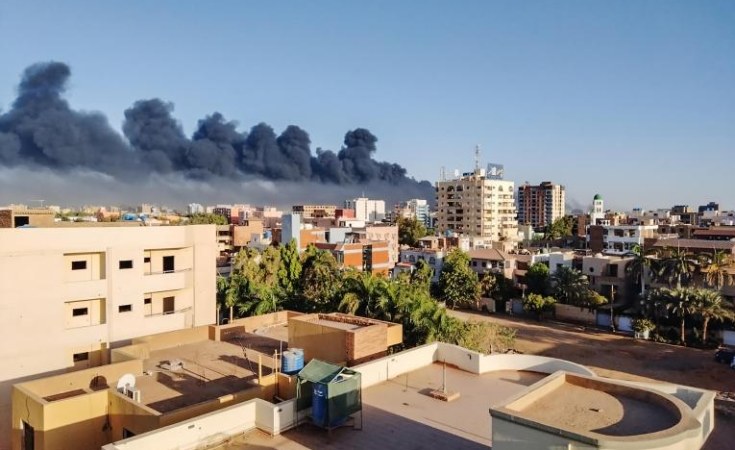The warring factions in Sudan's more than nine-week-long war have agreed another cease-fire, mediators say, shortly after deadly airstrikes hit the capital. All previous truces have failed to put an end to the conflict.
The two opposing military factions fighting for power in Sudan agreed to another 72-hour cease-fire on Saturday in a deal that came shortly after airstrikes hit the capital, Khartoum, killing at least 17 people.
The new truce, the latest in a series of attempts to put an end to the fighting, comes as the conflict between government troops and the paramilitary group Rapid Support Forces (RSF) enters its third month.
Local volunteers and the Khartoum Health Ministry said those killed in the airstrikes included five children. The strikes on the Yarmouk district of the Mayo area of southern Khartoum also destroyed some 25 homes.
The fighting, ongoing since April 15, has left over 3,000 dead and 6,000 more injured, Sudanese Health Minister Haitham Ibrahim told Saudi Hadath TV. He added that only half of the capital's 130 hospitals remained operational, while all West Darfur hospitals were out of service.
Over 2 million residents have fled to safer areas within Sudan or crossed into neighboring countries.
Clashes have intensified after a frail cease-fire expired last week. It was the latest of several others brokered to facilitate the delivery of humanitarian aid.
What do we know about the latest strikes?
The impoverished, densely populated southern neighborhood has been in the crosshairs several times, especially in recent weeks.
Neither party gave an immediate comment after the strikes, which reportedly also injured 11, and it was not clear whether the attack was carried out by aircraft or a drone.
The Health Ministry shared a video showing the destroyed homes due to the strikes.
The Sudanese military has mobilized its air force against the RSF since the start of the conflict. The latter has been hiding in residential neighborhoods, where the military has been attacking them.
Top military general Yassir al-Atta warned civilians to steer clear of homes occupied by the RSF, in a speech on Friday.
"Because at this point, we will attack them anywhere," he said to cheers. "Between us and these rebels are bullets."
The RSF, meanwhile, reportedly used drones and anti-aircraft missiles to fight the army.
Darfur medics 'overwhelmed' by wounded
In neighboring Chad, medics have complained of the influx of wounded citizens fleeing Sudan's Darfur region. The region, which saw fighting amounting to war crimes and crimes against humanity two decades ago, has been among the most impacted by the latest conflict.
"We are overwhelmed in the operating theater. We urgently need more beds and more staff," said Seybou Diarra, physician and project coordinator in Adre, Chad for the Doctors Without Borders (MSF) charity.
At least 149,000 people have fled Darfur into neighboring Chad, according to the International Organization for Migration (IOM).
The US State Department has put the death toll in West Darfur's state capital, Genena, at around 1,100 since the fighting erupted in mid-April.
Among the victims was West Darfur Governor Khamis Abdullah Akabar, the French AFP news agency reported. He was killed shortly after giving a television interview on Wednesday in which he criticized the RSF.
The paramilitary has denied responsibility for his death.
The US State Department has blamed the RSF "primarily" for the Darfur atrocities, warning that the violence witnessed in the volatile region was an "ominous reminder" of its previous genocide.
Sudan's ousted president Omar al-Basheer had used the Arab Janjaweed militia, from which the RSF later emerged, to quell Darfur's rebel uprising in 2003.
Local reports suggest the Janjaweed has been recently fighting alongside the RSF in Darfur.
rmt/sms (AFP, AP, Reuters)


